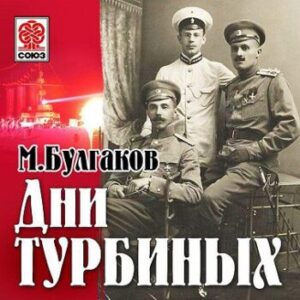In the now distant 1927, the Riga publishing house Literatura published a new novel by Mikhail Bulgakov, The Days of the Turbins. Perhaps, today, this fact would not be of particular interest to all of us, if not for a single interesting detail.
The fact is that the Literatura publishing house not only did not receive the author’s permission to publish the novel, but also had only a part of the first volume printed in Russia. But such a «minor» obstacle could not stop the enterprising businessmen, and the management of the publishing house instructed a certain follower of «Count Amory», and perhaps himself, to correct the first volume and finish the novel.
first appeared before the St. Petersburg public at the beginning
XX century. The owner of this unusual pseudonym was a certain Ippolit Pavlovich Rapgof. He studied piano at the St. Petersburg Conservatory. After completing his studies, he founded in St. Petersburg, together with his brother Eugene, the same connoisseur of music, «Higher Courses for Piano Playing.» The success of their enterprise was great, and the surname of the brothers became very noticeable in the capital’s music world. But the music did not play for long in the same composition: after a few years, the relatives quarreled. The courses remained forever «EP Raphoff’s Music Courses», and the indefatigable Ippolit Pavlovich got involved in a rivalry with his brother. He headed the private music school of F.I.Rousseau, which he brought to a high professional level, taking away from his brother a certain number of students. The changes began quite unexpectedly and quite trivially: the first gramophone was brought to St. Petersburg. And Ippolit Pavlovich understood: this invention is the future. What did he not do for the triumph of the gramophone ?! He traveled all over Russia, lectured about this miracle of technology, opened a record store in the Passage. His gramophone merits were fully appreciated by his contemporaries and descendants: it was he, according to the unanimous opinion, who managed to break the public’s distrust of the “mechanical ventriloquist”. But he, having already achieved victory, did not know peace. Ippolit Pavlovich was now attracted by literature. In 1898, a certain doctor Fogpari (de Cuosa) appeared to the capital’s readers: the name under which the same indefatigable Raphof disappeared. The doctor wrote about the «hygiene of love», pondered about «how to live to a hundred years», taught magic, described recipes for vegetarian cuisine — in a word, he undertook to write about everything that could interest the layman. Following Fogpari (the year is already 1904), Amory himself finally came to the fore. The count became an idol for lovers of tabloid literature. Having made his debut in the magazine «Light» with the novel «Secrets of the Japanese Court», he later wrote several novels annually. In addition to the favorite adventurous plots, these were also the continuation of already well-known works — Artsybashev’s «Sanin», Kuprin’s «Pit», «Keys of Happiness» by Verbitskaya. Each time a scandal arose around the sequels, the authors were seething — and the books were scattered, bringing the publishers a considerable income.
So the «count» conscientiously fulfilled the order, Bulgakov’s novel was published in three parts, and the first volume was extremely illiterately distorted and shortened, and the third part of the novel — the last 38 pages of the book — had nothing to do with Bulgakov’s text, and was entirely invented by a hack …
The original text of the novel, the audio version of which we present to you in a brilliant reading by Sergei Chonishvili, was released in Paris, in 1927, by the Concorde publishing house.
Producer of the publication: Vladimir Vorobyov
© & ℗ SP Vorobiev V.A.
© & ℗ ID SOYUZ
…
